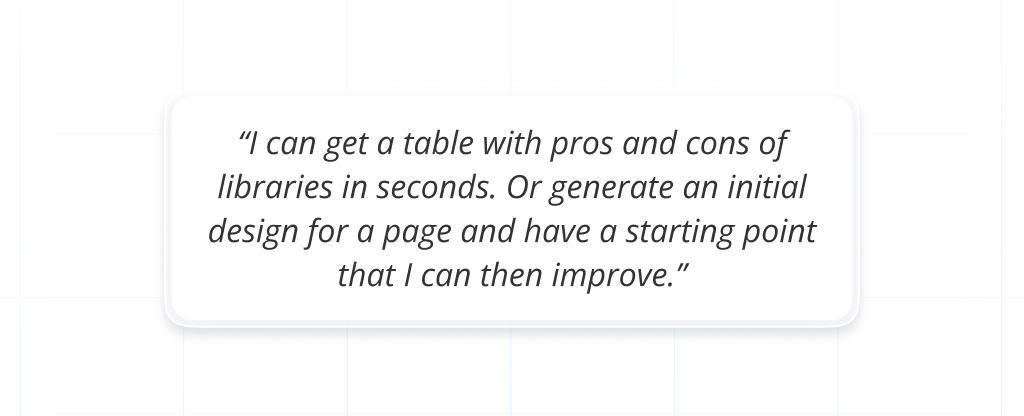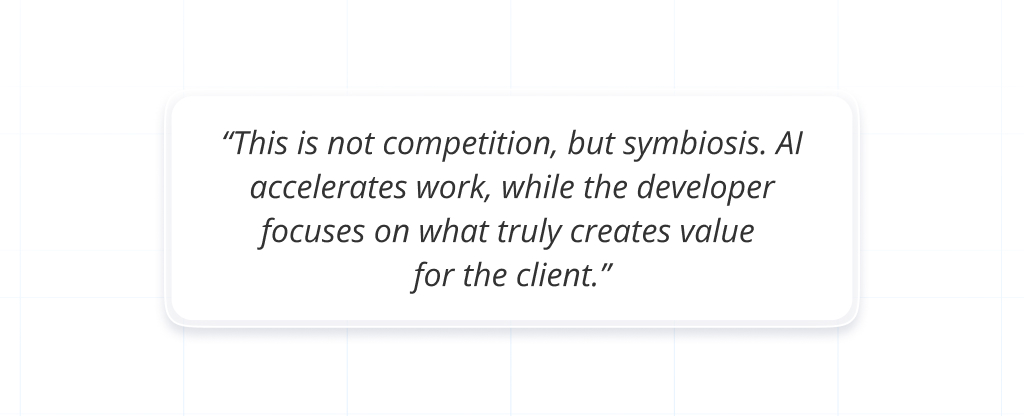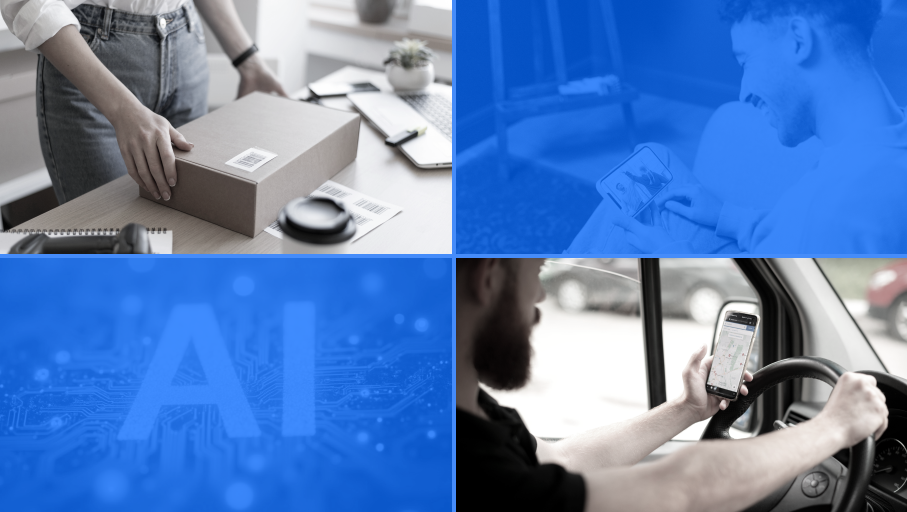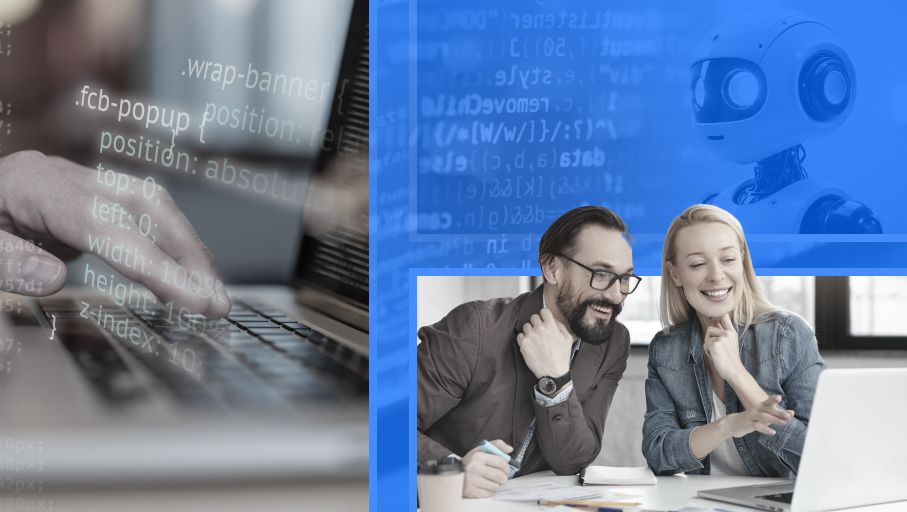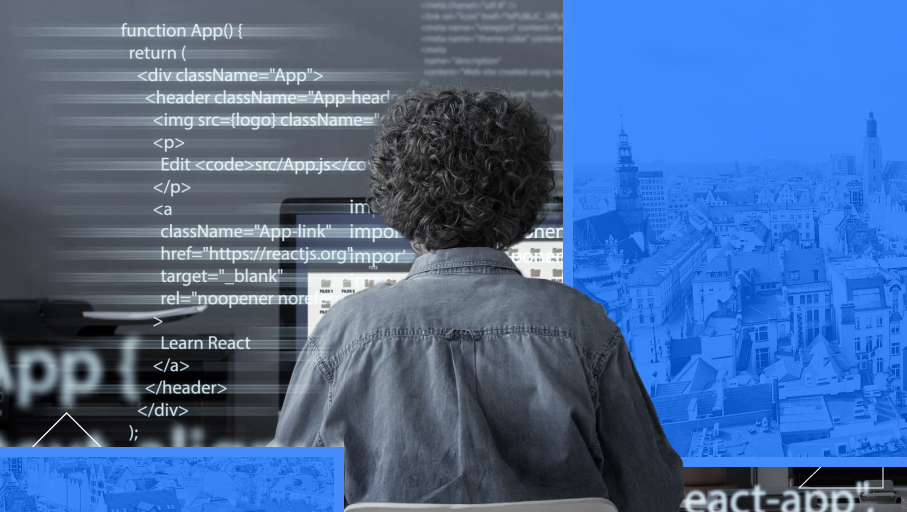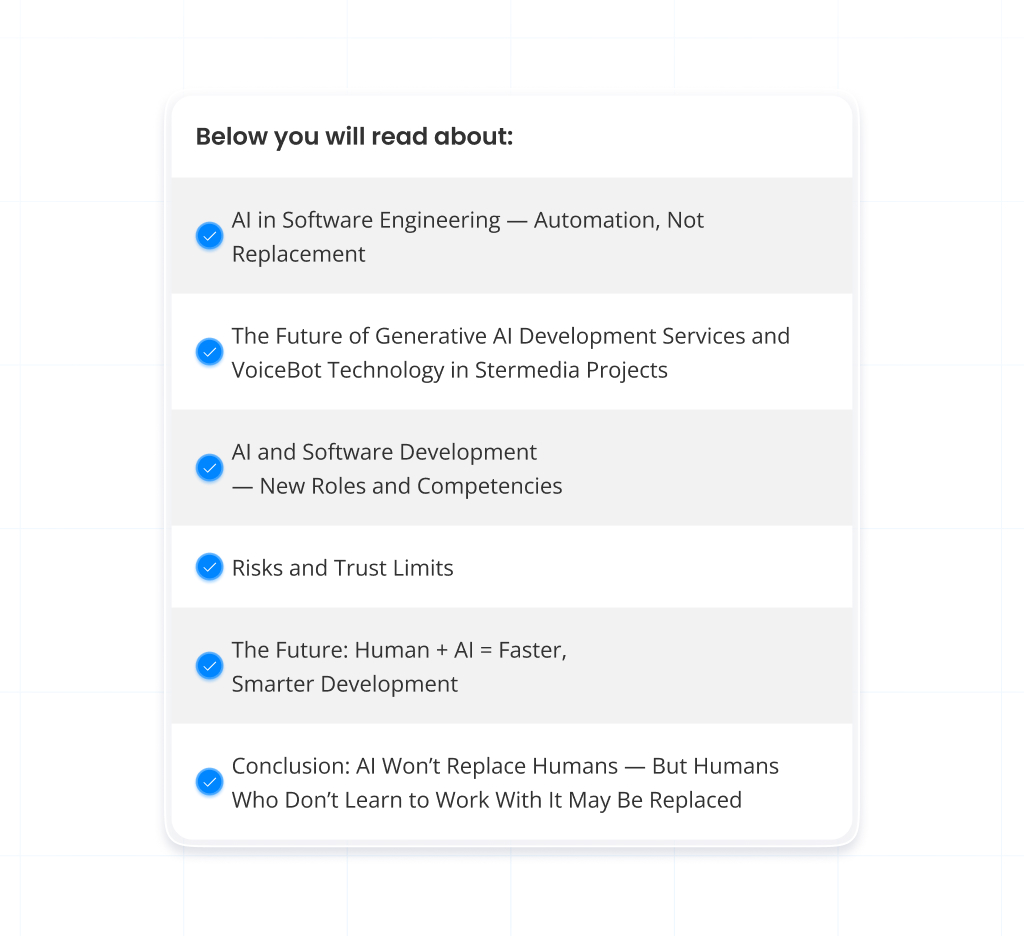
AI and Software Development is one of the hottest topics in the IT industry today. From GitHub Copilot, to Claude Code and Cursor, to ChatGPT – AI-powered tools have changed the way we create software. But does this mean that AI really “writes code” instead of humans? Or does it rather assist in a process that still requires experience, intuition, and an understanding of business context?
AI in Software Engineering — Automation, Not Replacement
As one developer from Stermedia emphasizes, artificial intelligence has made everyday work easier by delegating repetitive tasks – from generating code snippets to quickly comparing libraries and preparing documentation.
AI in software engineering excels at:
- Auto-completing code,
- Migrating between library versions,
- Translating and documenting existing code,
- Accelerating the learning of new technologies.
However, as the interviewee adds, AI doesn’t think critically. It doesn’t understand the business context, nor can it assess whether a solution is good or simply popular. And it doesn’t take responsibility for the consequences of its decisions. Therefore, the role of the human – the developer – remains crucial, as they understand the project, clients, and business objectives.
AI and Software Development — New Roles and Competencies
Contrary to media headlines, AI will not replace developers, but rather change their role.
In practice, this means that:
- Juniors should not start learning AI, to avoid losing critical thinking skills;
- Senior developers are increasingly becoming architects and code reviewers rather than just authors;
- Development teams need to develop communication skills and the ability to precisely describe context – because the quality of AI outputs depends on the quality of prompts.
Companies that skillfully combine human and AI competencies gain shorter project timelines, lower implementation costs, and greater team flexibility. However, they also require a new work culture – based on results verification, data security, and conscious use of AI tools.
Risks and Trust Limits
AI is not infallible. The most common issues include:
- Errors due to lack of context,
- Copying outdated or unsafe fragments from public repositories,
- Overwriting code fragments that should not change,
- Difficulty explaining why a tool made a particular decision.
Therefore, the best teams treat AI not as a developer, but as a co-developer/pair programmer. It assists — but always under human supervision.
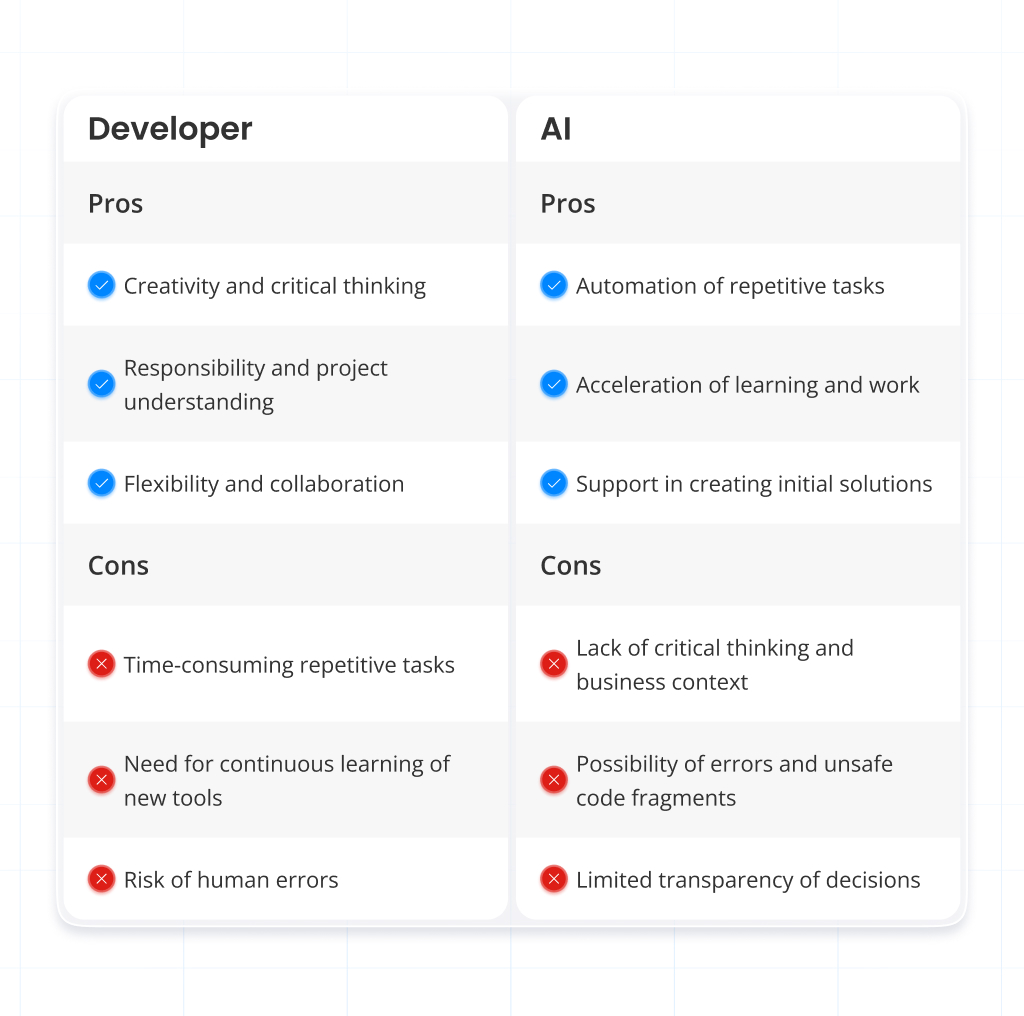
The Future: Human + AI = Faster, Smarter Development
In the next five years, technological specialization may give way to versatility supported by AI. Instead of developers specializing in “React” or “Vue,” there will be developers who can write in multiple frameworks, as AI will help them learn faster and switch between tools.
At the same time, there is an increasing demand for AI Architects and AI Consultants who not only write code but also understand how to safely and effectively implement artificial intelligence in the software development process.
Conclusion: AI Won’t Replace Humans — But Humans Who Don’t Learn to Work With It May Be Replaced
AI is transforming Software Development, but it doesn’t take away its human character. Developers who can combine creativity, technical knowledge, and collaboration with AI tools are becoming the new elite of software engineering.
Want to learn how Stermedia combines technology and human experience to create intelligent software?
Explore more insights and real-world applications:
- How Recommendation Systems Transform Modern Business — Explore how recommendation engines are changing the way businesses understand and engage with customers.
- How Companies Use Generative AI – 8 Use Cases — Discover practical examples of how organizations leverage Generative AI across different industries.
- How to Streamline Construction Management with Technology? — See how advanced technologies optimize processes and efficiency in construction management.
